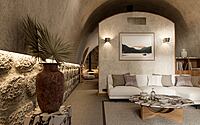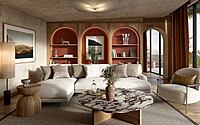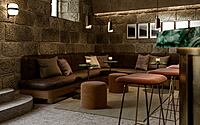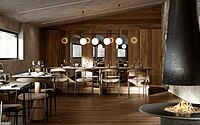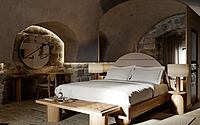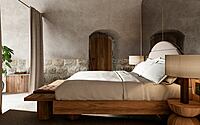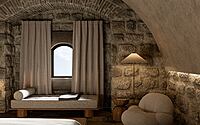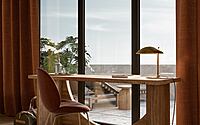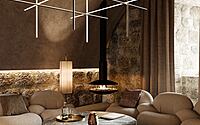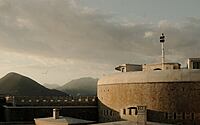Mamula Island by weStudio
Mamula Island is a beautiful hotel located in Kotor, Montenegro, designed in 2022 by MCM and weStudio.

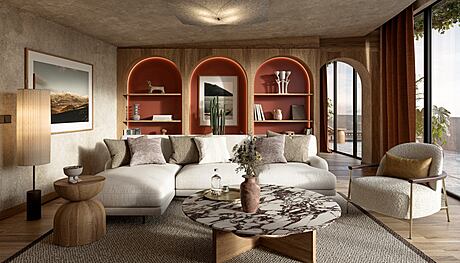
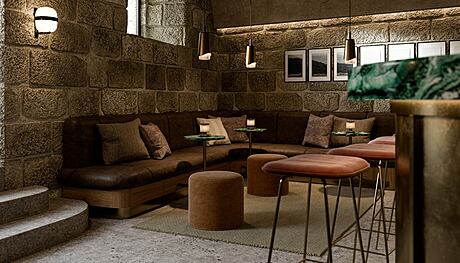
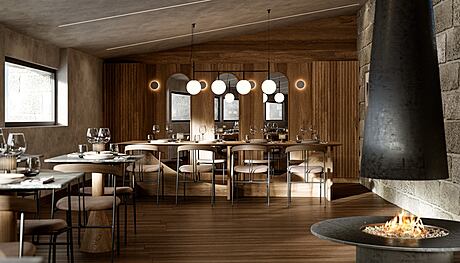
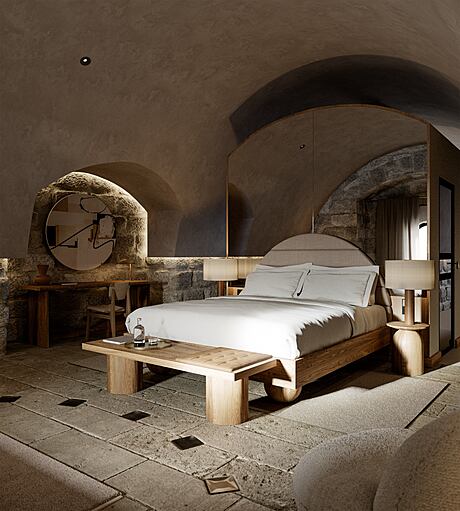
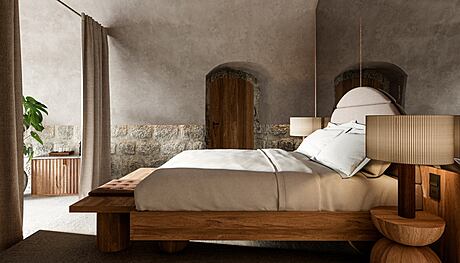
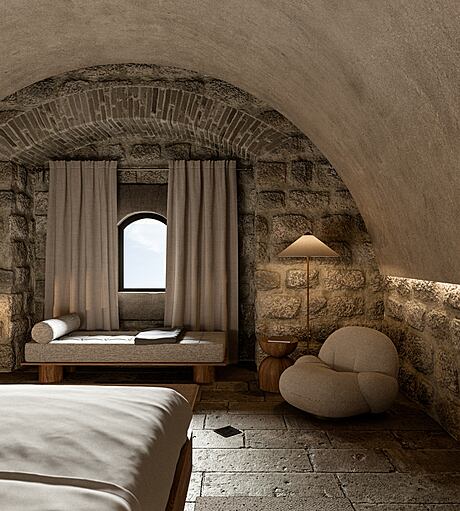
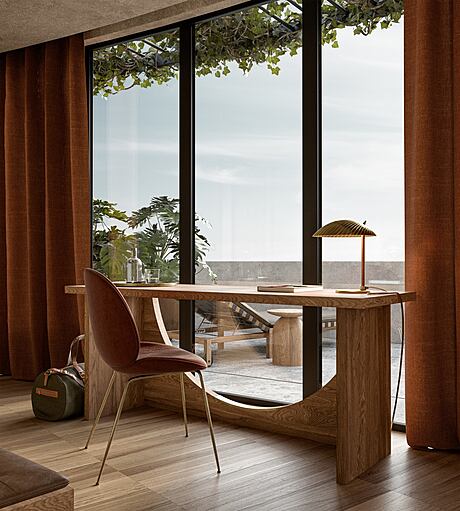
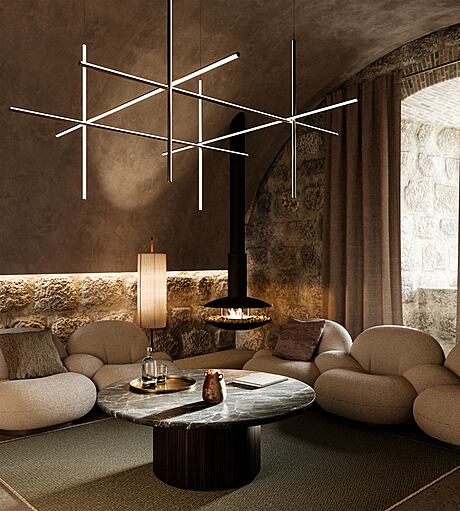
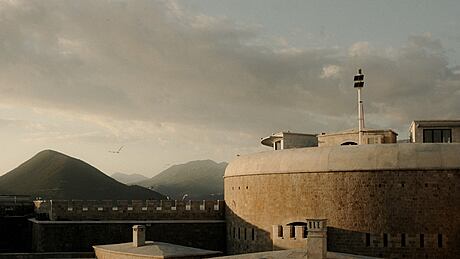
Description
Rising out of the Adriatic Sea off the northwestern coast of Montenegro, Mamula Island cuts a striking figure against the rich blue waters of the Bay of Kotor. In 1853, a fortress was built on the island to protect the bay – now a UNESCO World Heritage Site. Today, this incredible location is a place to come visit and discover for yourself. The extraordinary structure of the original fort was the perfect springboard for us to create a new story for Mamula Island.
In designing the interiors for the new hotel on the island, our goal was the creation of a space where the approach is a completely holistic one: The interior architectural components, the bespoke furniture and the tactile elements all come together to form an environment where every guest can feel connected to the place.
Throughout the design development process, we looked to a variety of cultural references to create a modern reinterpretation of a retreat. Inspiration ranged from the heritage of local artisanal trades (such as pottery and traditional furniture joinery techniques) to minimalist mid-century style and abstract fine art. These influences combined to create a distinct design language: sophistication and refinement interlaced with both the vernacular and a respect for the unique character of the island. Likewise, the chosen materials draw from tradition whilst staying universally modern and durable: think natural stone, aged brass, solid oak and breathable, organic textiles.
“Harnessing the contemplative atmosphere resonating from the island, our intent was to create a place of wonder”
The prevalent motif of the original fort structure is the arch – a symbol of both strength and support but also renewal and openness. In ancient mythology, arches and doorways were seen as thresholds between time and space, and in more modern times as symbols of the expansiveness of the sky. In our desire to create an immersive experience for the guests of Mamula Island, the recurring archways of the fort are recreated throughout the interior spaces. Additionally, the arch motif was the starting point for our custom made geometrical furniture line used throughout the hotel.
On Mamula Island, our holistic approach to the interior design embraces both the natural landscape and the original 19th century fort. It is a place of sustainable luxury, where objects age beautifully as they develop more and more character over time. Harnessing the contemplative atmosphere resonating from the island, our intent was to create a place of wonder! Where each and every guest can take their own journey to discovering what this remarkable place can offer to them.
The location
The prevalent motif of the original fort structure is the arch – a symbol of both strength and support but also renewal and openness. In ancient mythology, arches and doorways were seen as thresholds between time and space, and in more modern times as symbols of the expansiveness of the sky. In our desire to create an immersive experience for the guests of Mamula Island, the recurring archways of the fort are recreated throughout the interior spaces. Additionally, the arch motif was the starting point for our custom made geometrical furniture line used throughout the hotel.
Design/art movement inspiration
Throughout the design development process, we looked to a variety of cultural references to create a modern reinterpretation of a retreat. Inspiration ranged from the heritage of local artisanal trades (such as pottery and traditional furniture joinery techniques) to minimalist mid-century style and abstract fine art. These influences combined to create a distinct design language: sophistication and refinement interlaced with both the vernacular and a respect for the unique character of the island. Likewise, the chosen materials draw from tradition whilst staying universally modern and durable: think natural stone, aged brass, solid oak and breathable, organic textiles.
What were some of the challenges faced during the design process?
One of the challenges we had to face during the redesigning process of a historical site were restrictions that we had to abide to. There were some compromises we had to come up in order to not interfere with the building’s architecture. Staying true to its history was an incentive, we wanted to capture the spirit of the place without adjusting it to our needs.
Another obstacle regarding the location itself is the elements surrounding the island. Due to the changing weather like wind and storms the island was on an occasion inaccessible to visit. The logistics of deliveries made us respect the nature and its unpredictability.
Is there something you are particularly proud of design-wise?
We are proud of the final result of the interior design throughout the whole resort. We executed the idea of the holistic design, where all the spaces resonate with each other. The overall idea was to use similar materials but differentiating the spaces according to their use, so it is calming but exciting at the same time. That way we have achieved a ‘visual echoing’ effect to feel comfortable and safe whenever the guest goes. We created a mood of diversity in similarity.
What brands/designers are showcased (furniture, lighting, etc.)?
Gubi, Roda, Santa&Cole, Flos, Menu, and bespoke furniture designed by weStudio
What materials and color palette have you used?
We settled on the natural, organic, breathing materials like wood, stone and natural fabrics. They embody nature and authenticity that comes with it. In the resort’s SPA we settled on the locally sourced stone to match the contemplative/meditative spirit of the place. In different room categories we introduced different stone types so that every room tells a separate narrative for every guest. The colour palette draws directly from the island’s landscape. Natural, earthy tones mix with bright hues in a coherent, yet slightly contrasting, harmony.
What is your design motto?
We work contextually researching the historical and geographical context of a site to create a new, holistic experience while staying true to the place’s past. We like to create visual narratives to allow the guest to immerse themselves in the environment.
Custom-made furniture, textiles, etc.?
We developed a collection of bespoke furniture especially for this resort. The arch motif was the starting point for our custom made geometrical furniture line used throughout the hotel. The artisanal technique of joinery, where there are no screws or glue used were an inspiration for construction and some of their details.
Art
We participated in the process of art direction and selection of artworks. The final touch of the interiors are details like art and accessories, which we had an opportunity to introduce. We wanted to achieve the unified feel about the place. That is why we reached out to the local artist asking to create art and artisans to produce the objects to blend into the space thorough.
Layout of the rooms
Layout of the rooms was determined mostly by the on-site architecture. We designed five different room categories, but the same category rooms and suites differ from one another due to the room’s specifics. They are all designed to serve well within the layout and to get most out of the Mamula experience.
Materials used that are local or salvaged
All the woodwork and wood for furniture used in the hotel is locally sourced and comes from the area of the island. We also introduced Cevsky stone into the space’s design to incorporate materials that are locally sourced. It fitted perfectly with the idea of bringing authentic materials to the place of honesty.
Photography courtesy of Design Hotels
Visit weStudio
- by Matt Watts